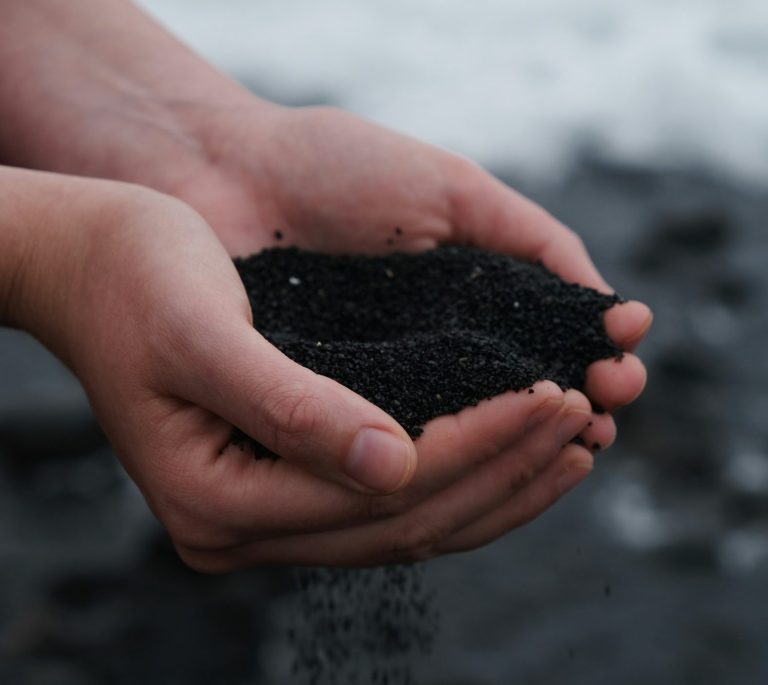
BIOCHAR
Biochar is a carbon-rich substance made from the thermal decomposition of organic material in an oxygen-limited environment, a process known as pyrolysis. This sustainable technology transforms agricultural wastes, wood chips, and other biomass into a stable form of charcoal intended for use as a soil amendment.
Long-term Carbon Sequestration
Biochar is highly regarded for its ability to lock carbon into the soil for hundreds or even thousands of years. By converting agricultural residues into biochar, we can significantly reduce the amount of carbon dioxide released back into the atmosphere, combating climate change by decreasing greenhouse gas concentrations.
Improvements in Soil Health:
- Enhanced Fertility: Biochar's porous nature helps retain water and nutrients at the root zone, making them more available to plants. This not only boosts plant growth but also reduces the need for chemical fertilizers, promoting a more organic approach to agriculture.
- Increased Microbial Activity: The complex structure of biochar provides a perfect habitat for soil microorganisms, which play a crucial role in nutrient cycling and organic matter decomposition. This increase in microbial activity enriches the soil biodiversity, supporting healthier and more resilient ecosystems.
- Soil pH Optimization: Biochar can help balance the pH of the soil, improving its overall structure and fertility. This is particularly beneficial in areas with either overly acidic or alkaline soils, making the land more suitable for a variety of agricultural purposes.
Other Environmental Benefits:
- Reduced Soil Emissions: By improving soil stability and nutrient cycling, biochar can reduce the emission of nitrous oxide, a potent greenhouse gas, from the soil.
Water Conservation: Biochar's ability to retain water significantly decreases the need for irrigation, conserving water resources and reducing the agricultural impact on local water bodies.
We need your consent to load the translations
We use a third-party service to translate the website content that may collect data about your activity. Please review the details in the privacy policy and accept the service to view the translations.

